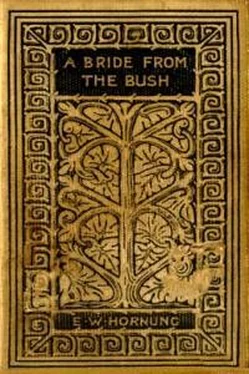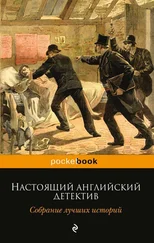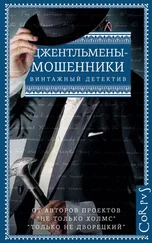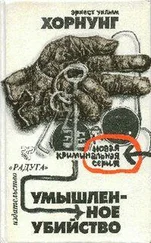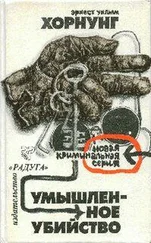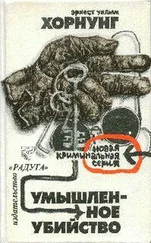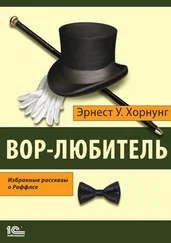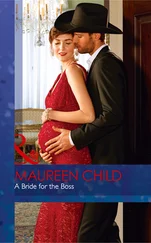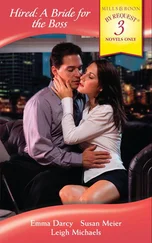Yet it was only with grief that she could think of the marriage, at present; she found it impossible to harbour bitter feeling against the young handsome face and honest brave eyes that had taken poor Alfred by storm, though they had blinded him to a hundred blemishes. The fact is, her daughter–in–law's face was haunting Lady Bligh. As the day wore on she found herself longing wistfully to see it again. When she did see it again, the face was changed; its expression was thoughtful, subdued, and even sad. Nor were there any gaucheries at dinner that night, for both Alfred and Gladys were silent and constrained in manner.
Then Lady Bligh took heart afresh.
"It is only her bringing up," she said. "She will fall into our ways in time; indeed, she is falling into them already—though not in the way I wish her to; for it must not make her sad, and it must not make her feel ashamed. It shall not; for I mean to help her. I mean to be to her what, indeed, I already am without choice—her mother—if she will only let me!"
Chapter 6
Comparing Notes
But, during those first few days, Lady Bligh did not get many opportunities of carrying out her good intentions towards her daughter–in–law. For several mornings in succession Alfred carried off his wife to London, and they never returned until late in the afternoon, while twice during the first week the pair went to the theatre. They were seeing the sights of the town; and the Bride did appear to be impressed with what she saw; but the prospect of an unreserved and racy commentary upon everything, which the first hour of her installation in her husband's family had seemed to hold out—and which Granville, for one, had counted upon—was not properly realised. And at this Alfred perhaps, was scarcely less disappointed than Granville.
"Why don't you tell them more what you think of things?" said Alfred. "They won't fancy you half appreciate the Old Country."
"I can't help it," replied his young wife. "You know that I do like what I see, dear: you know that I am just delighted with everything: but how can I tell them so, unless I tell them in my own way? Well, then, I see they don't like it when I drag in the Colonies; yet you must compare what you see with something you've seen before; and the Colonies is the only other country ever I did see."
But the fact is, it was not so much their daughter–in–law's comparisons, which were inoffensive in themselves, as the terms in which these comparisons were expressed, that Lady Bligh and Sir James felt bound to discourage. For it soon became plain that Gladys could not talk for two minutes about her native country without unseemly excitement; and this excitement was invariably accompanied by a small broadside of undesirable phrases, and by an aggravation of the dreadful Australian twang, even if some quite indecorous Bush idiom did not necessitate a hasty change of subject. When Australia was rigorously tabooed the Bride was safe, and stupid; when it was not, she might be bright and animated and amusing—but you could never tell what she would say next—the conversation was full of perils and pitfalls.
The particular conversations that revealed the thinness of the ice in this quarter were trivial in the extreme. In them it was mere touch–and–go with the dangerous subject, nothing more: nothing more because Gladys was quick to perceive that the subject was unpopular. So she became rather silent in the long evenings at the dinner–table and in the drawing–room; for it was her only subject, this one that they did not seem to like. To strangers, however, who were glad to get up a conversation with one of the prettiest women they had ever met in their lives, this seemed the likeliest topic in the world; they could not know that Australia was dangerous ground. The first of them who ventured upon it did not soon forget the experience; it was probably always a more amusing reminiscence to him than to Gladys's new relatives, who heard all that passed, and grinned and bore it.
The stranger in question was by way of being illustrious. He was a Midland magnate, and his name, Travers, was a good one; but, what was for the moment much more to the point, he was a very newly elected Member of the House of Commons; in fact, "the new boy" there. He came down to dinner at Twickenham flushed with the agreeable heat of successful battle. Only the week before he had snatched his native borough from the spreading fire of Democracy, and won one of the very closest and most keenly contested by–elections of that year. Naturally enough, being a friend of some standing, he talked freely of his electioneering experiences, and with a victor's rightful relish. His manner, it must be owned, was a trifle ponderous; according to Granville, he was an inflated bore. But Mr. Travers, M.P., was sufficiently well listened to (Lady Bligh was such a wonderful listener); and he fought his good fight over and over again with such untiring energy, and depicted it from so many commanding points of view, that, even when it came to tea in the drawing–room, the subject was still unfinished. At all events, it then for the first time became lively; for it was then that Mr. Travers turned to young Mrs. Bligh (also for the first time), and honoured her with an observation:—
"No doubt you order these things better in Australia; eh?"
"What things?" asked the Bride, with some eagerness; for of Australia she had been thinking, but not of Mr. Travers or his election.
"Why," said the Member, with dignity, "your elections. I was speaking of the difficulty of getting some of the lower orders to the poll; you have almost to drive them there. What I say is, that very probably, in Australia, you manage these things on a superior system."
"We do," said the Bride laconically.
The new Member looked astonished; he had expected a more modest answer.
"Indeed!" he said stiffly, and addressed himself to his tea–cup.
"For," explained the Bride, exhibiting dangerous symptoms, "we do drive 'em to the poll out there, and make no bones about it either!"
"Indeed?" said Mr. Travers again; but this time there was some curiosity in his tone. "This is interesting. I always thought Australia was such a superlatively free country!"
The Bride scented a sarcasm.
"So it is," she cried warmly, beginning to speak at a perilous pace, and with her worst twang; " my word it is! But you don't understand me. It's like this: we do drive 'em to the poll, up the Bush; I've driven 'em lots o' times myself. They're camped out—the voters, like—all over the runs, for all the hands have a vote; and to get 'em to the police–barracks (the poll, d'ye see?) on election day, each squatter's got to muster his own men and drive 'em in. I used to take one trap with four horses, and father another. Gracious, what a bit of fun it was! But the difficulty was—"
She hesitated, for Lady Bligh was staring at her; and, though her ladyship's face was in shadow, the Bride was disturbed, for a moment, by the rigid pose of the old lady's head. A queer expression was come over the face of the new Member, moreover; but this Gladys could not see, for he was a tall man, standing, while she was seated.
"What was the difficulty?" asked Granville from a corner, in an encouraging tone.
Gladys instantly forgot Lady Bligh. "To keep 'em from going to the shanty first ," she answered, with a merry laugh.
"The shanty?" repeated Mr. Travers, with a vague idea of sailor's songs.
"The pub., then. Of course they all went afterwards, and—but we were obliged to keep them sober till they'd voted; and that's where the difficulty came in."
The assembly shuddered; but, before new ground could be broken, Mr. Travers, for the first time interested in somebody else's electioneering experiences, said inquiringly:—
Читать дальше
